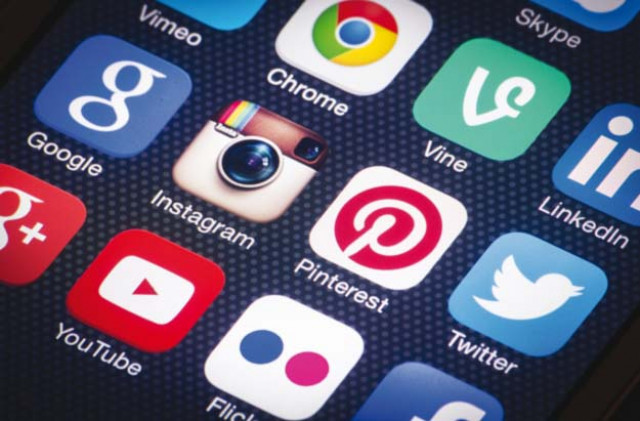Elections in the time of social media
While tweets can’t be converted to votes, social media presence and popularity matters

PHOTO: FILE
PTI Spokesperson Fawad Chaudhry told The Express Tribune that the rising trend was due to PTI’s effective use of the medium. He further said that it was then when politicians initiated youth-oriented advertising (YOA).
Almost 41 per cent of PTI’s advertisements were directed towards the youth. The increase in YOAs led mainstream political parties, including the Pakistan Muslim League-Nawaz (PML-N) and the Pakistan Peoples Party (PPP), to join the bandwagon. In 2018, all major political parties focused on the youth as the major vote bank.
Political parties take to internet to highlight activities
PTI has also utilised social media to spread the word about their upcoming public gatherings. For example, a Facebook event page was created for their upcoming rally in Karachi.
Independent candidate Jibran Nasir has also effectively used the power of social media by using live Twitter and Facebook videos through which he disseminated his political manifesto. Multiple speeches made by politicians are shared on social media by their official profiles.
However, social media has also been used by political figures to name and shame each other. PTI Chief Imran Khan resorted to Twitter to bash the former ruling party and criticise its role.
Some politicians, on the other hand, choose to remain silent. Multiple right-wing political parties have very little social media presence but this will change as these platforms gain more traction each day.
PTI’s Chaudhry also said that political parties are now investing heavily in their social media campaigns. When asked of PTI’s expense, Chaudhry claimed that most work is done by volunteers as the party avoids “paying large amounts like the opposing PML-N”.
Nighat Dad of Digital Rights Foundation compared the 2013 social media campaign of PTI with others and said other political parties were hesitant then, but now the trend has changed.
Parties like PPP and PML-N have caught up with their competitor. She added that now parties are including digital policies to their manifestos and drafting counter-strategies to face any backlash by other parties.
Senior journalist Mazhar Abbas said social media is an unedited mess that no one wants to take ownership of. Speaking on the recent wave of politicians tweeting in Urdu, Abbas said that in order to reach the maximum audience, communicating in Urdu is more effective.
“English is more effective globally. Few local English channels were introduced and tried to bring a change, but were unable to bring about greater impact,” he added.
Petition on fake Facebook accounts
Analyst and activist Usama Khilji told The Express Tribune that social media increases the accountability of parties and their representatives. However, Khilji was of the view that results on Twitter and Facebook do not necessarily translate on-ground which indicates a low real-time value of these platforms.
Khilji predicted that urban areas will have the most impact of social media on elections.



















COMMENTS
Comments are moderated and generally will be posted if they are on-topic and not abusive.
For more information, please see our Comments FAQ